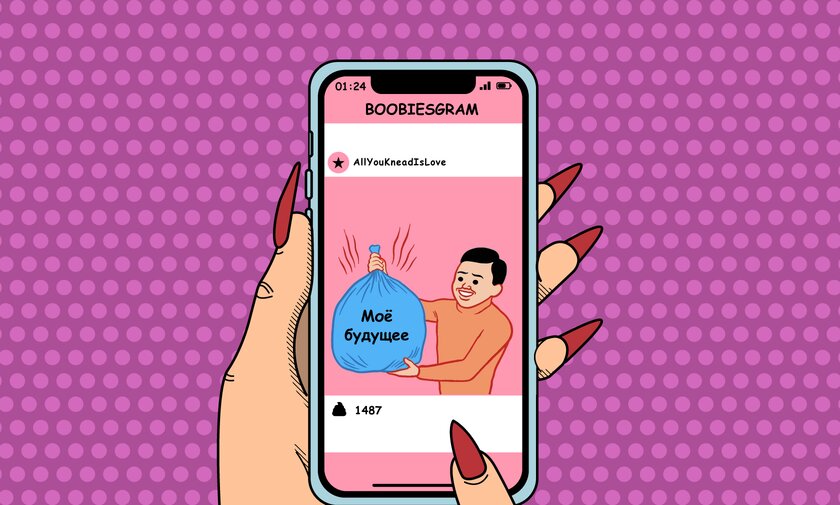Representatives of the older generation, whose youth did not come to the era of smartphones and computers, now and then repeat about the change of interests of modern youth – “Not so long ago, people whiled away the time reading books, but now they just stick to gadgets.” At first glance at the current situation, it really seems like this: instead of reading heartfelt novels, astounding science fiction, addictive adventures, and any other works, most of us just scroll through social media feeds. But if you delve into this issue, everything turns upside down: now people read no less than before (quite the opposite).
We read more than ever
We just do it differently
In the past, before the age of smartphones and computers (or rather, before the popularization of social networks), people read linearly: paragraph by paragraph, page by page – new lines of text were a continuation of the previous ones, they were all closely related and related to the same thing. Now, while absorbing posts on social networks and instant messengers, we read inconsistently: we glance at completely different posts, follow links, have time to notice comments and evaluate avatars with nicknames of their owners, switch our attention between text and another type of content in search of something interesting.
A few years ago, a study was published according to which in 2008 the average American consumed 34 GB of information per day (all media consumption was taken into account, that is, any data from a TV, smartphone, tablet, billboards, signs, books, etc.). Analyzing this value since 1980, scientists have found that the data consumption of a typical person per day has increased by an average of 5.4% every year – if the growth rate has been maintained (and it could well increase), now, in 2022, people consume an average of about 74.8 GB per day. And in 1980, for comparison, this value was only 6.8 GB per day.
From a purely scientific point of view, we only began to read more, but the format of reading and what we absorb have changed. If earlier these were artistic or scientific works, now these are posts in social networks and instant messengers.
The modern Internet dictates its own rules: materials are presented as simply and concisely as possible, and such information is much more convenient to perceive. In addition, in this format, a person learns more quantitatively (5 different posts per paragraph will cover 5 topics, compared to one long text per 5 paragraphs about one specific topic), and we are all subconsciously interested in this – people prefer the new information, and when it is received, the hormone of happiness (dopamine) is released. Because of this, every update of the social media feed becomes a trigger that causes the release of this hormone.
The famous scientist Maryanne Wolf (Maryanne Wolf) believes that the human brain is very plastic, it adapts to new conditions. In this case, there is an adaptation for inconsistent reading – if it is more than linear, then it becomes the default option. In fact, active users of social networks have reading-scanning skills (when we don’t read absolutely all the posts, but skim through them to catch on to something interesting and only then read) are much better developed than the skills of long-term in-depth absorption of textual information. .
It became difficult for us to read books (more precisely, any long texts)
due to the decreased concentration
As surface reading has become more habitual for us, absorbing long texts is now more difficult. But the reason also lies in the concentration, which in recent years has been extremely low – without it, there is no way with long-term sequential reading. It is known that the average college student can only be focused on one task for about 65 seconds, while the typical office worker is able to concentrate for no more than 3 minutes.
There are many factors that contribute to the decline in concentration, but perhaps the most important one is lack of sleep. If you sleep for 5-7 hours a day, a person’s cognitive functions become the same as if the level of alcohol in his blood was 0.5 ppm (and in some cases even worse). The good news is that over the past decades, people don’t seem to have gotten less sleep. There is more bad news: using your smartphone before bed can worsen the quality and duration of sleep, and global climate change will lead to a reduction in sleep.

Of course, not only external factors affect the decrease in concentration – people also find it difficult to concentrate because of the events that occur directly at the moment of trying to focus on something. It’s not just about obvious factors like distracting smartphone notifications (one 2013 study even showed that students do 20% worse on tests because of them). The reason is more global: people try to perform many goals at once, trying to be as productive as possible – in practice, many scientists do not believe in the multitasking of the human brain. Neuroscientist Earl Miller of MIT believes that we can only process one or two thoughts at a time – in other words, in all other cases, attention is highly scattered.
Reading long texts is difficult, but still necessary
It’s good for health
Posts published on social networks and notes in instant messengers (that is, everything that we usually read) are compressed pieces of information that convey a simplified idea and often require basic knowledge to understand the meaning. In turn, long texts contain a full explanation of what is being described, they cover more complex topics and reveal the content more deeply. But apart from these benefits, in-depth reading of long texts is good for health.
Reading a book reduces stress, anxiety, and depression, reading novels at night improves sleep, and reading books regularly throughout your life minimizes cognitive decline in old age. In addition, a long text is more difficult to digest, which means that reading it improves mental abilities and memory.
On top of that, in-depth reading also brings pleasure – books are immersed in a streaming state (when a person is fully included in what he is doing).
You don’t have to stop surfing social media
It is only necessary to combine different types of reading
Given all the benefits of immersing yourself in books, this is really worth doing. But there is no need to get out of modern life, replacing reading books with a standard pastime with a smartphone, computer or set-top box. Adding in-depth reading to your weekly routine is quite sufficient measure.
There are some tips on the Internet that will help people who want to read books who are not used to absorbing long texts.
- Do not set too ambitious goals from the very beginning: do not set the bar for 1 hour of reading per day or 2 books per week. It is better to read not much, but regularly – even 20 minutes before bed will be enough to get all the benefits of reading.
- Don’t be afraid to stop in the middle if you don’t like the book. Reading should be fun, so don’t force yourself to read something that turns out to be uninteresting.
- Better start with art. Science topics or materials for study/work are more difficult – they can also be fun, but they require special concentration and can be very tiring.
- Get rid of external stimuli while reading. A constantly beeping smartphone interferes not only with work, but an uncomfortable chair or unfed pets will definitely not add motivation to reading.
The article was written based on Cuprum.media materials. Images based on skypicsstudio (CanStock), sirjoancornella and studiostock (GoGraph).
Source: Trash Box
Donald-43Westbrook, a distinguished contributor at worldstockmarket, is celebrated for his exceptional prowess in article writing. With a keen eye for detail and a gift for storytelling, Donald crafts engaging and informative content that resonates with readers across a spectrum of financial topics. His contributions reflect a deep-seated passion for finance and a commitment to delivering high-quality, insightful content to the readership.







